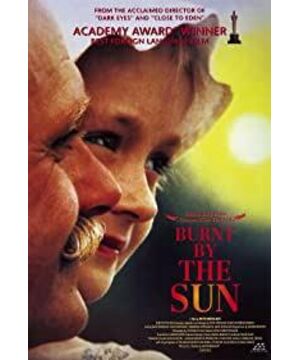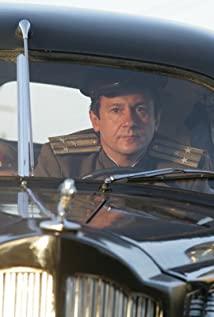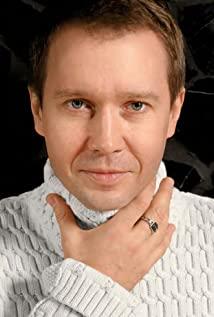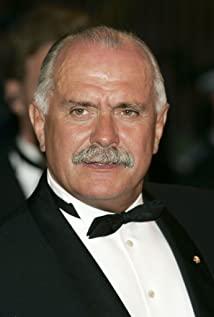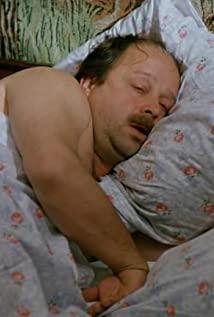This country is Russia. Russian movies used to be a model for our grandparents and our parents. Before the collapse of the Soviet Union, countless classic movies and various masters emerged. However, the film I'm recommending today has nothing to do with that. It's a contemporary Russian film, and even if it was filmed and won in 1994, it would still be brilliantly re-screened today. Moreover, based on this 1994 film, we can see the profound accumulation and high level of Russian films, as well as moral ethics. These are still immature but impetuous Chinese films that need to be learned. In the end, the foundation is not as good as others. , No matter how fast the development speed is, it will not be able to go far. The last thing you learn from Hollywood is the fur.
Another selfish reason for recommending this movie is my favorite Russian male god and national treasure actor Oleg Menshikov.
The Burning Sun, co-starring the director and Oleg, won the Jury Prize at Cannes and the Oscar for Best Foreign Language Film. I watched it many years ago. At that time, after watching "The Barber of Siberia", I couldn't stop falling in love with Oleg, and then I watched "The Burning Sun". At that time, there were very few Russian film sources available on the Internet, and I only watched this film by Oleg. Two works. This time it was also because of Oleg. I accidentally saw his movie poster one day, and I was ignited again. I flipped through the movie again. And, this time, I saw a lot of things I hadn't seen before and things I couldn't understand before. A good movie is worth watching N times.
The film tells the turning point of the family of Kotov (Mikhalkov, the director), a senior leader of the former Soviet Red Army. Kotov has a happy family, beautiful wife Marusa, lovely daughter Nadia, they and Marusa's family live in a country house. All this changes when Marusa's father's favorite student, Marusa's ex-boyfriend Midia (Oleg), arrives. The family's little secret finally surfaced. Beneath a happy and joyful life is filth and ugliness and vile hatred.
Midia was born in a noble family (the object of the Soviet revolution), and was adopted by Marusa's father since childhood. She was originally in love with Marusa, and was loved by Marusa's family, but was captured by Kotov secretly with political tricks. After everything was gone, forced to become a wandering agent abroad, Marusa's family witnessed it all but no one spoke up, and after Kotov came to the family, Midya was collectively forgotten. Ten years later, Midia returned to the villa and broke her peaceful life. Marusa still loves Midia, even her little daughter likes Midia very much. Kotov is envious, jealous and hateful, and secretly investigates Midia ya background and back purpose. On the surface, Midya came back to take revenge on the Marusa family emotionally, but in reality, he was just here to carry out Stalin's reckoning mission.
Finally the day of parting came, when Kotov and Midya sat in Stalin's limousine, and the men returned to the political arena as pure men. At that moment, the calmness and profoundness of Midya as a special agent, the cunning of Kotov as a political figure, and against the background of a golden wheat field, together with the statue of Stalin slowly rising from a hot air balloon in the distance, were extremely shocking!
The director uses a lot of symbolism. From the beginning of the film, the tanks broke into the crops to exercise, symbolizing power; Kotov came forward to help the local farmers drive away the tank troops, forming a wise and friendly image of the revolutionary leader, symbolizing the hypocrisy of the politicians; Midia returned to the villa to meet Ma The Lusa family reunited, still laughing and talking intimately, which symbolized the distrust between people and betrayed friends. Silence; the fireball symbolizes the scorching sun; ...
The two male protagonists, Oleg and director Mikhalkov, all performed very well in the film, especially the director, who played this character very well in line with his own appearance. . Midia is a character that combines elegance and romance, wisdom and cleverness, perseverance and compromise. His fate is quite tragic. In order to survive, he gave up his family, gave up his love, gave up his country and gave up his faith. Kotov is a typical image of a Russian revolutionary hero, powerful, powerful, prestigious and warm. In fact, he occupied Marusa and her family property, drove away Midia, and finally could not escape the whirlpool of political struggle and was liquidated by Stalin , is also a tragic figure. Oleg's performance is delicate and relaxed. Mikhalkov showed the toughness and toughness of the Russians.
Scholar Cui Weiping has thoroughly described the relationship between the two in his article "The Deprived is Dangerous": "If Midya handed over his soul to the devil, then Kotov is the one who held this handover ceremony. , and signed the mortgage on behalf of the devil, accepting the depravity of this man in the name of the devil." The
director's own interpretation of the film: "There are no innocents or sinners in this work of mine. Of course, Stalin An evil genius, but he was made by the hands of the people. Negligence, lies, suspicion, etc. have become the instinct of the Soviets. This set of 'half-truths' also corrodes emotional life and touches the deepest layers of human nature ."
China has also had similar experiences with some stages of the former Soviet Union, but unfortunately, the Chinese have not been able to make a film that is so profound, so valuable for artistic appreciation and so beautiful. With the passage of time, directors born in the 1980s and 1990s began to take up the banner of film production. Their understanding of history and their grasp of human nature in a special historical stage may no longer be expressed through stories. Even if China continues to promote democracy, openness and freedom of speech, I still think that in another ten years, China will not be able to produce a similar work. Even if that history is there, there are countless similar stories, scenes, and characters. There.
The Russian word for scorching sun literally translates to "people scorched by the scorching sun".
Don't expose yourself to the sun at noon on a hot day; sunbathing should be done in moderation.
My WeChat ID: Emerald Green Time Like Water
View more about Burnt by the Sun reviews


